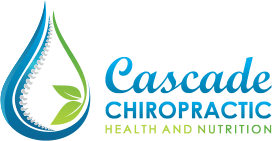Imagine you’re the digestive system for a few minutes. It’s nearly dinnertime, and the aroma of your favorite meal fills the house, your mouth begins to water (that’s one of the first steps of digestion, you know) while the stomach prepares for the work ahead. Imagine, if you will, a little person in the stomach with his yellow acid-proof suit, hard hat, and heavy duty rubber boots. His job is to keep the acid and enzyme levels just right, so he sends information to the brain about what’s for dinner and waits for messages from the brain to tell him which levers to pull. The purpose of the enzymes and acid is to break up the food (he really prefers chewed up food) so that the nutrients can be absorbed in the intestines. Without the proper balance of enzymes and acids the food can’t get broken down and the little buy in the yellow rubber suit has to work overtime. He hates overtime! How does this delicate balance get messed up? Here’s one way – see if this example applies to any other aspects of your health.
Let’s call our little rubber-suited person Ace (ase) since many of the enzymes are lipase, protease, cholinesterase, etc. So Ace is getting all the stuff in order when the guy who owns the body decides to listen to one of those silly commercials he heard on T.V. You know the ones; two guys sitting in a car, one guy says to the other, “Hey, Joe let’s have a chili dog.” Joe says, “Oh, I’d love to but I forgot to take my Pepcid AC.” The other guy says, “Don’t worry about it, take some of mine it works right away.” So he takes an antacid. Ace seeing it land says to himself, “Hey what’s going on? My mixture is all wrong, that pill is messing with the acid balance.” Ace quickly sends a message to the brain. The brain responds, “Send more acid!” Ace jumps into action and pulls more levers. Here we have a situation where the body has to over perform, do double duty, to get a basic task done. The problem extends far beyond that meal however, because eventually the glands responsible for producing enzymes and acids have done the work of two lifetimes and they get tired of working overtime. They go on strike and refuse to work! Pretty soon, even if there is no Nexium, Prilosec, Prevacid, or Tums there just isn’t enough energy left in those glands to get the easiest food digested.
What leads up to a body requiring a drug? What causes enough interference in the communication system to produce too much acid, too little insulin, estrogen, thyroxine? One reason is dietary and lifestyle choices that create an unfavorable condition in the digestive system. The standard American diet of sugar-laden and highly-acidic processed foods, consumed in rushed conditions can lead to indigestion, heartburn, acid reflux, and ulcers. These types of issues are so common that acid blocking drugs are among the most highly prescribed drugs on the planet. Acid blockers were prescribed at 270 million hospital trips made by ambulance from 2006-2010 and account for $10 billion dollars annually.
In addition, more and more newborns and infants are receiving a diagnosis of reflux and GERD. An analysis of health records of more than 792,000 children born between 2001 and 2013 uncovered that 8% of children were prescribed antacids and antibiotics in their first 6 months of life. We need to ask ourselves, is it possible that these infants lack the proper gut flora to digest their food due to poor gut health of the mother (which passes to the baby in the birth canal)? Could this lead to additional health and digestion issues as the child grows into adulthood? The answer to these questions is most certainly yes. The answer to the problem however, is not an antacid, it lies in the restoration of normal digestive function and a return to health!
Guyton, A. (1976) Medical Physiology. Zed Books.
Chetley, A. (April 26, 2002) “Problem Drugs.” IMS Reports. Fairfield, CT: IMS Health.
GreenMedInfo Research Group (January 16, 2018) “Top 5 Reasons NEVER to Take a Proton Pump Inhibitor.” Retrieved from http://www.greenmedinfo.com/blog/top-5-reasons-never-take-proton-pump-inhibitor
Mozes, A. (April 3, 2018) “Babies given antacids, antibiotics may have higher risk for allergies, asthma.” Retrieved from http://www.chicagotribune.com/lifestyles/health/sc-hlth-babies-antacids-antibiotics-risk-0411-story.html
